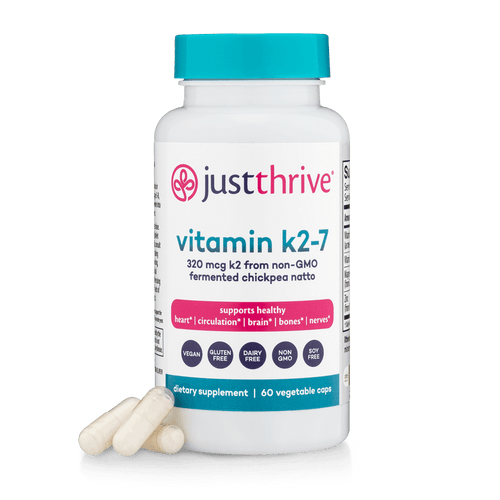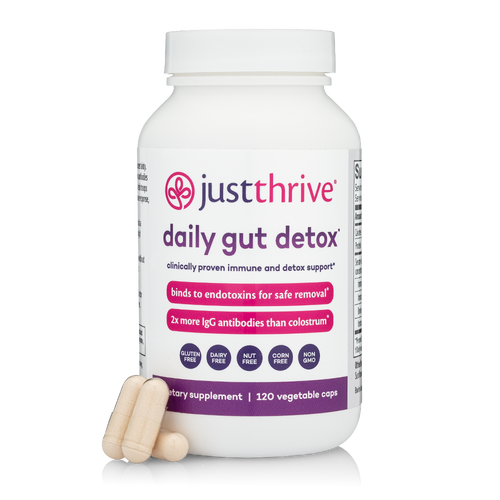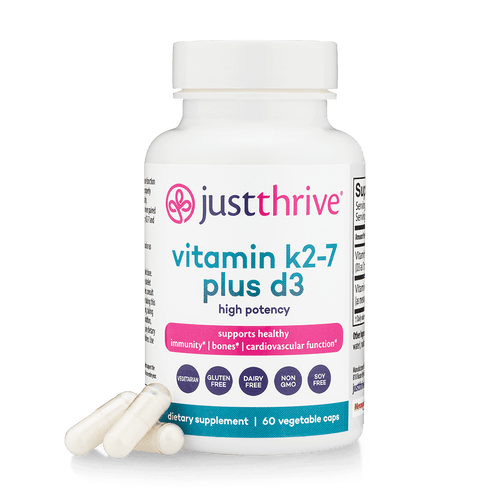You feel overloaded, overwhelmed, and under pressure (physical and mental). Your pulse starts pounding... You can feel your heartbeat through your whole body...
These are telltale signs of stress in the body, and for many of us, these feelings are all too familiar.
It's no secret that you can count on stress to make your blood pump harder than normal. But when you’re faced with ongoing or constant stress, it can really take a severe toll on your heart and overall health.
Of course, you can’t get rid of the stressors, but you can keep your blood pressure and heart rate under control… and support and protect your best heart health in the process.
Bears, Bosses, and Evolutionary Stress
When you feel stressed, your body goes into fight-or-flight mode. That instinct kicks in whether you’re being chased by a bear or chewed out by your boss. Your body can’t tell the difference, and it acts to protect you no matter what.
Stress is designed to unleash a flood of hormones to help you escape and survive dangerous situations. Those hormones include adrenaline and cortisol.
Adrenaline gets your heart pumping faster and increases your blood pressure to make sure your arms and legs get maximum blood flow in an emergency. Cortisol raises your blood sugar levels to give you more energy and keeps your heart rate elevated to deliver that extra sugar.
Both of those hormones get your heart racing until your body sends out the message that the threat has passed and it’s ok to shut down and slow down (so you can get back to normal).
What’s Normal Heart Rate and Blood Pressure?
Stress sets off a spike in both your heart rate and your blood pressure to get you out of perceived danger. In a perfect world, as soon as the danger is gone, your body then quickly and easily calms down, and both your heart and blood pressure return to healthy, regular rates.
So what counts as normal for these key heart health measures?
Unless you’re an elite athlete, your normal resting heart rate should fall between 60 and 100 beats per minute.
Blood pressure is a little more involved than simply counting beats. Your blood pressure measure consists of two numbers, reported in millimeters of mercury, or mm/Hg:
- Systolic pressure - the top number - measures the pressure during heart beats.
- Diastolic pressure - the bottom number - measures pressure between beats.
Blood pressure levels fall into five distinct categories:
| Category | Systolic (top number) | and/or | Diastolic (bottom number) |
| Normal | Under 120 | and | Under 80 |
| Elevated | 120-129 | and | Under 80 |
| Stage 1 Hypertension | 130-139 | or | 80-89 |
| Stage 2 Hypertension | 140 or higher | or | 90 or higher |
| Hypertensive Crisis | Higher than 180 | and/or | Higher than 120 |
(note: this info is from the American Heart Association; they show the levels in stoplight colors)
But stress can push those numbers out of the healthy zone.

Chronic Stress Keeps Your Heart on Edge
When you have acute stress, where you quickly go from stressed back to a calm state, your body travels through the full stress cycle. With chronic stress, your body never gets the calm-down signal, so it stays on high alert all the time. That means you’re constantly flooded with stress hormones, like cortisol, that keep your pulse and blood pressure high.
When that happens, your heart has to work harder all the time just to keep up with regular body functions.
Chronic stress increases your risk for heart problems – especially hypertension, or high blood pressure. That’s because having high cortisol levels has been linked to a 90% higher risk of having a cardiac event that damages heart muscle. (link: https://www.ahajournals.org/doi/10.1161/HYPERTENSIONAHA.121.17618)
The Nutrient That Activates Heart-Helping Proteins
You’ve likely heard about vitamins A, B, C and D, but what about K2? If you’re scratching your head, you’re certainly not alone. Vitamin K2 doesn't get as much attention as other nutrients, and you won’t find it on most food labels.
But this essential vitamin plays an oversized role in keeping your heart healthy. Also known as Activator X (for the crucial role it plays in numerous bodily functions), vitamin K2 has the important job of activating critical proteins necessary for healthy blood pressure and pulse rates.
One of the most important K2-activated proteins is called Matrix Gla Protein, or MGP. This protein keeps calcium out of your blood vessels so they don’t harden, a condition called atherosclerosis. Hard, narrow blood vessels force your blood pressure to go up, which leads to other high-risk conditions.
And that’s just one way vitamin K2 helps keep your blood pressure and heart rate at normal levels.
Vitamin K2 Is The Sword And Shield For Your Heart
Scientists have conducted hundreds of studies involving vitamin K2 and heart health. That’s because adequate K2 levels have been shown to be a foundational part of a strong, healthy heart. Conversely, K2 levels that are too-low can put your heart at risk.
Studies show that vitamin K2:
- Increases activated MGP to help keep blood pressure in a healthy range
- Helps maintain healthy blood flow in the blood vessels in your arms and legs
- Helps keep your coronary arteries - the blood vessels that go to your heart - strong and flexible
In fact, studies show that for every 10 micrograms of vitamin K2 that you consume, you give your heart 9% extra support. So imagine what taking the clinically-proven dose of 320 micrograms per day could do!
You Can’t Get Enough K2 from Diet Alone
It’s virtually impossible to get enough vitamin K2 from your regular diet. You certainly won’t find this nutrient in processed foods or junk food, and even if you eat a healthy diet, it’s probably lacking in K2.
That’s because it’s only found in a few foods, such as:
- organ meats
- natto, a fermented soy paste
- full-fat dairy products from grass-fed cows (yes, they have to be grass-fed for K2 content)
And if you’re thinking you can just pop a standard multivitamin to get K2, unfortunately, you’d be mistaken. Most multis don’t contain K2 at all. [Note: Some multis contain vitamin K1, which is not the same.]
Your best option is to try a high quality vitamin K2 supplement. That way you can make sure your body is getting enough K2 to support the production of those heart-healthy proteins.
Give Your Heart the Gift of Vitamin K2
Vitamin K2-7 is an important nutrient for heart health and can help maintain normal blood pressure and heart rate. Plus, a growing body of published research confirms that K2:
- Support a healthy heart and circulation
- Maintains healthy arteries
- Encourage healthy blood sugar levels
- Aids in optimal bone, brain, and nerve health
- And support overall healthy growth and development
Unfortunately, 97% of Americans are K2-deficient!
That’s why Just Thrive created its Vitamin K2-7 supplement to make it easier than ever to get the recommended amount of K2-7 your body needs!
Just Thrive Vitamin K2-7 is THE ONLY K2 on the market:
- With 320 mcg of pharmaceutical-grade K2-7 (the optimal daily amount)
- The crucial absorption cofactors magnesium and zinc (that unlock full effectiveness)
- Formulated with MenaquinGold®️ (from non-GMO Organic Chickpea Natto) for 100% guaranteed potency
- With multiple published safety studies showing the effectiveness
Support healthy blood pressure and heart rate every day with Just Thrive Vitamin K2-7.














